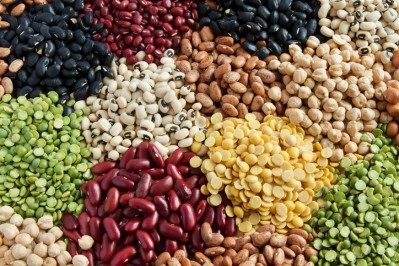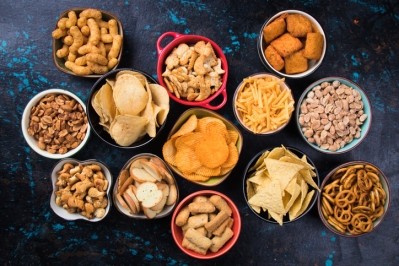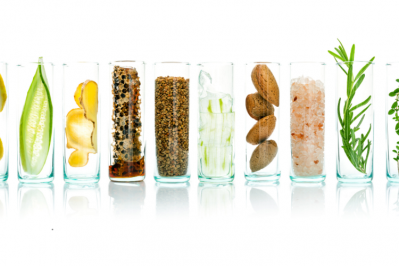New alternative protein developed from edible mushrooms growing on legumes and grains

In recent years, a surge in the number of alternative protein products have found their way on-shelf. The trend is largely driven by flexitarian consumers, who are actively reducing their meat intake and upping consumption of plant-based foods.
Today, the global plant-based food market is estimated to be worth $10.3bn. ResearchAndMarkets expects it to reach $14.5bn by 2025.
However, according to Jasmin Ravid, CEO and co-founder of Israeli start-up Kinoko-Tech, industry is still in the ‘early days’ of the transition to a ‘post-animal food production system’.
“The evolution of alternative protein has been accelerated in recent years with the creation of more and more complex products that focus on mimicking the taste and texture of animal-based products,” she said.
Ravid is concerned that in focusing on improved taste and texture in the plant-based space, the nutritional value of plant proteins has been ‘sacrificed’. The end result? Heavily processed and expensive products, she said, with “many of them based on allergenic soy and wheat”.
Kinoko-Tech is taking a different approach. At Reformulate: Fermentation-Enabled Alternative Protein Innovation Digital Summit last week, Ravid told delegates that by leveraging fermentation, the start-up hopes to transform ‘superfoods’ into ‘extra superfoods’ for the alternative protein market.
Fermenting fungal mycelium, legumes and grains
Kinoko-Tech’s technology is founded on fungi-based fermentation. Ravid and her team grow mycelia, otherwise known as fungus filaments, which predominantly grow underground in the wild. “Mycelium is sometimes referred to as the wood-like structure of the fungi,” she elaborated.

The start-up grows the mycelium in a mixture of legumes and grains via a solid-state fermentation process. “Solid state fermentation is becoming more and more popular now in start-ups,” explained the CEO. “The main advantage we see in solid fermentation…is the ability to meet desirable mouthfeel and texture without the need for additional processing.”
After between four to eight days of growing, the raw material – composed of both the fungi and the legumes mixture – is ready to be harvested, cooked, and eaten. “The fungi processes the legumes as feedstock, but it also remains in the final product,” we were told, “thus functioning as both an ingredient and an active processing mechanism.”
The mycelium improves the nutritional value of the legume mixture. Whereas conventional lentils are usually made up of 73% carbohydrates and 24% protein, Kinoko-Tech fermented lentils contain 58% carbohydrates and 35% protein.
But it’s not just about the increased protein levels, the CEO stressed. The fermentation process alters the product’s amino acids composition to become a complete protein with all nine essential amino acids required for the construction of muscle tissues in our bodies.
Further, the process increases the product’s stability, gives it a higher digestibility score, and adds ‘unique metabolites’ beneficial to human health, she continued.
“It [also] completely changes the taste and texture,” said Ravid, who described Kinoko-Tech’s alternative protein as being ‘as rich and delicious as meat’.
Scaling up with vertical farms
The start-up uses an indoor vertical farming platform – without need for soil, fertiliser, or light – to produce its protein product. The platform is sustainable, zero waste, and has a ‘very low energy need’.
It is also suitable to all climates. “We can grow inside cities, enabling food security, local production, and simply supply chains,” we were told.
Having been founded in 2019, the company is already producing its novel protein at a small scale. Currently, Kinoko-Tech is producing ‘high quality products’ in up to 10 days with minimal human involvement in the growing process.
“Solid state fermentation platforms allow for scaling out, instead of scaling up, by increasing our production with many small-scale units. This reduces the risk and cost associated with scaling,” Ravid explained.
The start-up estimates that after scaling, it will be able to produce 1,000 tonnes of raw material in a four-square-metre room within a month.
As Kinoko-Tech scales, it plans to bring down its price to be cost competitive with some of the best-known plant proteins. “In the early stages, the price will be premium. But ultimately, the beauty of our technology is that we can be cost competitive with traditional animal-

based products and even tofu.”
Commercialisation strategy: ‘We are not aiming to be meat analogues’
While Kinoko-Tech’s CEO described the novel protein as being ‘as rich and delicious as meat’, she also stressed the products are ‘not aiming to be meat analogues’. In appealing to the flexitarian market, the start-up wants to be “familiar and delicious, so that the consumer will choose chicken breast or tofu one day, and Kinoko the next”.
Following a B2B model, the start-up will sell its ingredients to food manufacturers and into foodservice. “Our production is fundamentally a natural, whole food product that we harvest. It can be integrated into many different products or sold as a raw material like tofu and seitan, which can easily be cooked at home.
“It is an alternative to both meat and traditional plant-based proteins, such as pea and soy. We want to help people reduce their animal protein consumption easily, while retaining the delicious pleasure from their known and loved comfort foods.”
Concerning regulation, Ravid stressed that all ingredients used in the manufacturing process are food grade and edible. Kinoko-Tech is putting together a Generally Recognized as Safe (GRAS) application which it will submit to the US Food and Drug Administration (FDA) for approval in the ‘upcoming year’.


























